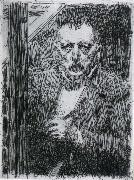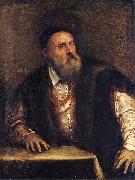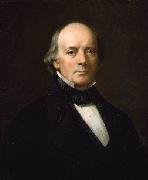
Oil On
Canvas, Real Flavor of Old Masters
|
Anders Zorn
|
|||
|
|
|||
| Swedish 1860-1920 Swedish painter, etcher and sculptor. He was brought up by his grandparents at Mora. As he displayed a precocious talent for drawing he was admitted to the preparatory class of the Kungliga Akademi for de Fria Konsterna, Stockholm, at the age of 15. Dissatisfied with the outdated teaching and discipline of the Academy and encouraged by his early success as a painter of watercolour portraits and genre scenes (e.g. Old Woman from Mora, 1879; Mora, Zornmus.) Zorn left the Academy in 1881 to try to establish an international career. He later resided mainly in London but also travelled extensively in Italy, France, Spain, Algeria and the Balkans and visited Constantinople. However, he continued to spend most of his summers in Sweden. | |||
|
|
|||
|
|
Self Portrait. new4/Anders Zorn-843884.jpg Painting ID:: 31577 Visit European Gallery |
mk73 1911 pencil drawing 15.8x11.9cm | |
Height Width |
INS/CM |
||
|
X |
|
||
|
|
|||
|
Hans von Aachen
|
|||
|
|
|||
| was a German mannerist painter. His name is derived from the birth place of his father, Aachen in Germany. Other variations of the name include Johann von - and - von Achen and various concisions like Janachen, Fanachen, Abak, Jean Dac, Aquano, van Aken etc. Hans von Aachen began painting in Germany as a pupil of the Flemish master E. Jerrigh. He then moved to Italy in 1574 to study further. He toured Rome and Florence, but eventually settled in Venice. He initially became a pupil of Kaspar Rems, but soon decided to develop his own mannerist technique, by studying Tintoretto and Michelangelo's followers. However, during all of his life he was influenced by the style of Bartholomeus Spranger and Hendrick Goltzius who dominated the art scene in Germany at the time. He returned to Germany in 1588 where he became well known as a painter of portraits for noble houses. He painted several works for Duke William V of Bavaria. He married Regina, the daughter of the composer Orlando di Lasso in Munich. In Munich he came into contact with the Imperial Court in Prague. In 1592 he was appointed official painter of Rudolph II, Holy Roman Emperor. However, Von Aachen only moved to Prague in 1601, where he stayed painting commissions from Emperor Rudolph II, and later from Matthias I. Amongst van Aachens pupils were Peter Isaak and Joseph Heinz. His works have been copied by Wolfgang Kilian, Dominicus Custos and Jan Sadeler. | |||
|
|
|||
|
|
Self portrait. new23/Hans von Aachen-769546.jpg Painting ID:: 67876 Visit European Gallery |
Year ca. 1574(1574) Technique Panel Dimensions 51.2 X 36.5 cm | |
Height Width |
INS/CM |
||
|
X |
|
||
|
|
|||
|
Titian
|
|||
|
|
|||
| Italian High Renaissance Painter, ca.1485-1576 Italian painter active in Venice. As a young man he was taught by the Bellini family and worked closely with Giorgione. His early works are so similar in style to Giorgione's as to be indistinguishable, but soon after Giorgione's early death Titian established himself as the leading painter of the Republic of Venice. Among his most important religious paintings is the revolutionary and monumental Assumption (1516 ?C 18) for Santa Maria dei Frari, in which the Virgin ascends to heaven in a blaze of colour accompanied by a semicircle of angels. Titian was also interested in mythological themes, and his many depictions of Venus display his work's sheer beauty and inherent eroticism. Bacchus and Ariadne (1520 ?C 23), with its pagan abandon, is one of the greatest works of Renaissance art. Titian was sought after for his psychologically penetrating portraits, which include portrayals of leading Italian aristocrats, religious figures, and Emperor Charles V. He reached the height of his powers in The Rape of Europa (c. 1559 ?C 62), one of several paintings done for Philip II of Spain. He was recognized as supremely gifted in his lifetime, and his reputation has never declined. | |||
|
|
|||
|
|
Self portrait. new24/Titian-346969.jpg Painting ID:: 78986 Visit European Gallery |
ca. 1550-1562 Medium Oil on canvas Dimensions 96 x 75 cm (37.8 x 29.5 in) cyf | |
Height Width |
INS/CM |
||
|
X |
|
||
|
|
|||
|
Chester Harding
|
|||
|
|
|||
| painted Self Portrait in 1843 | |||
|
|
|||
|
|
Self Portrait. new24/Chester Harding-396559.jpg Painting ID:: 80216 Visit European Gallery |
Self Portrait. about 1843. By Chester Harding, American, 1792 - 1866. 76.2 x 63.18 cm (30 x 24 7/8 in.). Oil on canvas. Classification: Paintings 1843 cjr | |
Height Width |
INS/CM |
||
|
X |
|
||
|
|
|||










